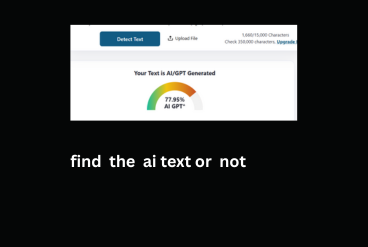Future of Artificial Intelligence: Comprehensive Overview
Introduction to the Future of Artificial Intelligence
Artificial Intelligence (AI) is evolving at an unprecedented pace, promising to reshape industries, societies, and everyday life. The future of AI involves advancements that will enhance the intelligence, autonomy, and applications of machines, affecting everything from healthcare to transportation, education, and beyond.
Key Areas Driving AI’s Future
1. Advancements in Machine Learning
Machine Learning (ML) continues to be the backbone of AI development. Future breakthroughs in ML, such as deep learning Deep Learning, reinforcement learning (Reinforcement Learning), and transfer learning (Transfer Learning), will lead to smarter, more efficient, and adaptable AI models.
2. Explainable AI (XAI)
As AI systems grow more complex, the demand for Explainable AI Explainable Artificial Intelligence will increase. This branch seeks to make AI decisions transparent and understandable to humans, essential for trust, ethics, and regulatory compliance.
3. Artificial General Intelligence (AGI)
The pursuit of Artificial General Intelligence Artificial General Intelligence, AI that can perform any intellectual task a human can, remains a long-term goal. AGI would enable machines to reason, learn, and solve problems across diverse domains without human intervention.
4. Quantum Computing and AI
Quantum Computing Quantum Computing promises to revolutionize AI by dramatically increasing computational power, enabling processing of vast datasets and complex algorithms far beyond current capabilities.
Impact on Industries and Society
1. Healthcare
AI-powered diagnostics, personalized medicine, and robotic surgeries will become standard, improving accuracy and accessibility.
2. Transportation
Self-driving cars and smart traffic management will enhance safety and efficiency. See Autonomous Cars.
3. Education
AI-driven personalized learning will cater to individual student needs, transforming educational methodologies.
4. Workforce and Employment
Automation will change job profiles, creating new roles while phasing out others. Reskilling and human-AI collaboration Human–Computer Interaction will be critical.
Ethical, Social, and Regulatory Challenges
1. Ethical AI Development
Responsible AI aims to avoid bias, ensure fairness, and respect privacy.
2. AI Governance and Policy
Governments will enact regulations to oversee AI development, addressing security risks and accountability.
3. Social Implications
AI’s impact on privacy, employment, and social dynamics must be thoughtfully managed.
Future Trends and Predictions
- AI-powered creative systems generating art, music, and literature.
- Increasing integration of Internet of Things (IoT) with AI for smart environments.
- AI as a service becoming ubiquitous in businesses.
- More collaborative robots (cobots) working alongside humans.
- Expansion of AI in climate modeling and sustainability efforts.
Conclusion
The future of Artificial Intelligence holds immense potential for innovation, productivity, and solving complex global challenges. However, navigating ethical, social, and technical challenges responsibly will determine how beneficial AI becomes for humanity.


